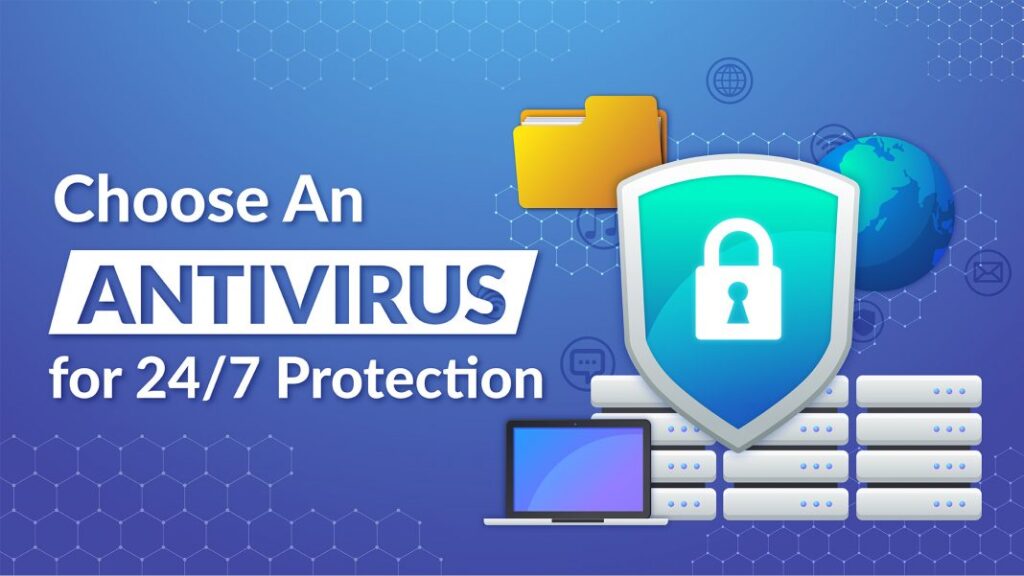Types of Antivirus Software
Free vs. Paid Antivirus Solutions
Free antivirus is tempting, right? But while free versions cover basic threats, they often lack advanced features like firewall integration or ransomware protection. Paid versions give you the full toolbox to fight threats more aggressively and intelligently.
Standalone Antivirus vs. Internet Security Suites
Standalone antivirus software focuses solely on virus protection. But if you’re looking for extra layers—like parental controls, VPNs, and identity theft monitoring—go for an internet security suite. Think of it as upgrading from a padlock to a security system.
Key Features to Look for in Antivirus Software
Real-Time Scanning
This is your frontline defense. Real-time scanning keeps a constant watch on all files, downloads, and even email attachments to catch threats before they hit.
Malware and Ransomware Protection
Not all antivirus tools are created equal when it comes to these evolving threats. Choose software that specifically highlights ransomware protection in its feature list.
Firewall Integration
A built-in firewall is like having a digital bouncer. It checks who’s trying to access your system and blocks suspicious activity.
Phishing and Spyware Detection
Phishing emails can look shockingly real. Good antivirus software flags these tricky tactics and blocks spyware that tracks your actions.
Parental Controls and Privacy Tools
For families, this is a must. You can monitor and limit kids’ internet use, block harmful sites, and keep their online experiences safe.
Evaluating System Compatibility and Performance
OS Compatibility (Windows, Mac, Linux, Android, iOS)
Some antivirus tools are designed with specific platforms in mind. Make sure the software supports your device’s OS—especially if you use multiple devices.
Impact on System Speed and Performance
What’s the point of protection if your computer becomes sluggish? Opt for antivirus software that’s known for low impact on system performance.
User Experience and Interface
Ease of Use
If it feels like you need a PhD to navigate your antivirus dashboard, that’s a red flag. A clean, intuitive interface makes life easier—especially when you’re under cyberattack stress.
Installation and Setup
The best antivirus software is quick and painless to install, with clear step-by-step instructions and minimal user input needed.
Customer Support and Help Resources
Availability of Technical Support
Live chat? 24/7 helpline? Email support? These options matter when you’re stuck or panicked over a potential virus.
Online Knowledge Base and Community Forums
Sometimes you don’t want to call support—you just want to Google the fix. A strong knowledge base or helpful user forum can save you time.
Pricing and Subscription Models
One-Time Purchase vs. Subscription
Some antivirus programs offer lifetime licenses; others use yearly subscriptions. Subscriptions usually come with frequent updates and better support, but weigh the long-term costs.
Multi-Device Licensing
Got a phone, laptop, and desktop? Look for plans that let you protect multiple devices without buying separate licenses.
Independent Test Results and Reviews
AV-Test and AV-Comparatives Scores
These labs do the dirty work—testing software against real-world threats. Look for high detection rates and low false positives in their scores.
Real User Reviews and Feedback
User reviews tell you what it’s really like to use the software—bugs, support quality, and how well it holds up over time.
Special Considerations for Businesses vs. Individuals
Endpoint Protection for Enterprises
Businesses need broader coverage—think centralized control panels and endpoint protection across dozens (or hundreds) of devices.
Cloud-Based Solutions for Remote Teams
With more teams working remotely, cloud-managed antivirus tools offer real-time control and updates no matter where employees are.
Popular Antivirus Brands Comparison
Norton
A longtime heavyweight with strong malware protection, smart firewall, and tons of extras like dark web monitoring.
McAfee
Well-rounded and ideal for families, McAfee offers multi-device coverage and a password manager bundled in.
Bitdefender
Known for its lightweight impact and powerful threat detection, Bitdefender is a solid choice for both techies and casual users.
Kaspersky
Despite past controversy, Kaspersky remains one of the most trusted names for advanced threat defense.
Avast and AVG
Both are solid free options with paid upgrades. Great for users who want basic protection without the bells and whistles.
Common Mistakes to Avoid When Choosing Antivirus Software
Overlooking Hidden Costs
Watch out for renewal prices, extra device charges, or “add-on” features that seem essential but cost more.
Ignoring Update Policies
Antivirus that doesn’t update frequently is basically useless. Ensure your software provides automatic, regular updates.
Making Your Final Decision
Matching Software to Your Specific Needs
Are you a casual browser? A heavy downloader? A remote worker? Choose software that fits your lifestyle and habits.
Trying Before Buying (Free Trials)
Test-drive your top picks. Most premium antivirus programs offer 7 to 30-day free trials. Use them!
Conclusion
Choosing the right antivirus software isn’t just about picking a big-name brand. It’s about finding the right match for your needs, lifestyle, and budget. Do your research, test the waters, and make sure your digital life is protected—without compromising speed, usability, or peace of mind.
FAQs
Q1: Is free antivirus software enough?
Free antivirus works for basic protection, but it often lacks features like ransomware defense and advanced firewalls. If you’re doing more than just browsing, a paid version is worth it.
Q2: How often should I run virus scans?
Set your antivirus to run daily or weekly scans automatically. You can always run a manual scan if you suspect something’s off.
Q3: Can antivirus software slow down my computer?
Some older or bloated antivirus programs can. Look for ones optimized for low resource usage like Bitdefender or Kaspersky.
Q4: Do I need antivirus for my smartphone?
Yes! Especially for Android users. Phones are just as vulnerable to malware, phishing, and data theft as PCs.
Q5: What should I do if my antivirus misses a threat?
Disconnect from the internet, run a full system scan, and consider using a second opinion scanner like Malwarebytes. Always keep your antivirus updated.
Read More Article About Technology
